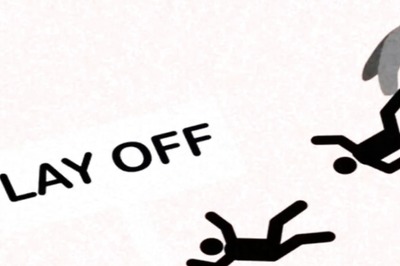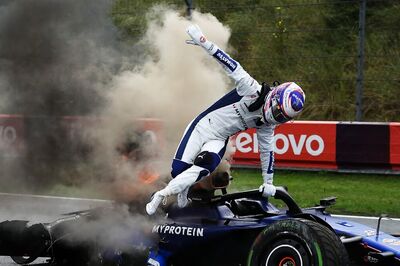
views
As we joined the young writers and researchers from Korea to wait for Wolsan Kidong Kim at the hotel lobby, the air of veneration was quite palpable. The grand old poet walked in, steadying himself on a walking stick and smiling heartily.The small crowd soon settled into the coziness of the dim-lit lobby to listen to the checkered poetics of 74 long years, narrated in undiluted Korean.One of the most distinguished and respected voices of his country, Kim was born in an undivided Korea in 1938. His writings - poetry and essays – bear the scars of a severed soul. More than half a century later, his voice does not crack as he recounts how the war between North and South Korea (in reality a proxy war between the super powers of USA and USSR) rendered him homeless and in charge of a family of widows and orphans who no longer had a roof over their heads. All in a matter of eleven days and he was all of 16 years.Kim interrupts the translator, Emma Cho, to add a point and we wait. “The war had started on the same day as my 12th birthday,” he says. “It was the most colourful period of anybody’s life, teenage. And it was lost to me, in suffering and helplessness. But, later, it became the source of my writing,” he says and as the translator gets to work, he gazes into our eyes to see if the agony is conveyed at all.A representative of his publisher sneaks in a bottle of water without hindering her friends from the filming the interview. The ailing bard is happy and takes some water. He has been out all day long, attending readings at the Kritya Poetry festival 2012 and the stress was evident in his laboured manner. Yet, his interest is piqued at the reference to the Wolsan mountain in South Korea.“Wolsan is related to my poetry. My village is in the valley and the mountain is holy to us. As a child, I climbed the mountain everyday. And it is also where I dreamt about my future and nurtured my hopes. It is at the core of all my poetry,” he says, as if, thinking aloud.“It is also important in other ways. I had a master as a young poet. She called me Wolsan, recommending readers to watch out for me. She asked me to adopt it as my pen name and I did. Wolsan is an image for my poetic philosophy, wherein, my poetry is like a shadow of the grief-stricken childhood. The mountain of grief is much like a cold, misty hillock. But it also promised the hope of a sunrise to a young poet.”And a sunrise he did seek out and embrace. Before he crossed his teens, he was chained to bonded labour for seven years to a wealthy household in the village, for he had borrowed rice from them to feed his homeless family.Throughout his youth, he was forced to do menial jobs. Yet, when the opportunity to enter a university in Canada came his way at 52, Kim knew he had all the time in the world to start from the scratch. He went on to specialise in theology and made a promise to himself that he would pen all that his postulations as books. He kept writing them over the years and finished the last one, the 250th, in 2011.“I did learn English while I lived in Canada because it was terrible to survive without knowing the language in the initial years. But, I have lost touch and cannot remember any to speak to you now,” he laughs.Politics has never had a direct bearing on his poetry, for “it is not the job of the poet to lead propaganda” he clarifies. “Young poets of Korea ought to be truthful to their history and document it in their writings. Young film-makers in Korea do make movies on war, but they are honest representations of reality. When old people like me talk about the war, they frown and ask why should an old war be talked about any more. But, we cannot afford to forget. Only literature can preserve memories,” he says and the young, jeans-clad translator smiles in embarrassment as she translates the words.And then, he quotes a poem that Tagore once wrote to the people of Korea, saying that his country was like a lamp in an age of darkness.




















Comments
0 comment